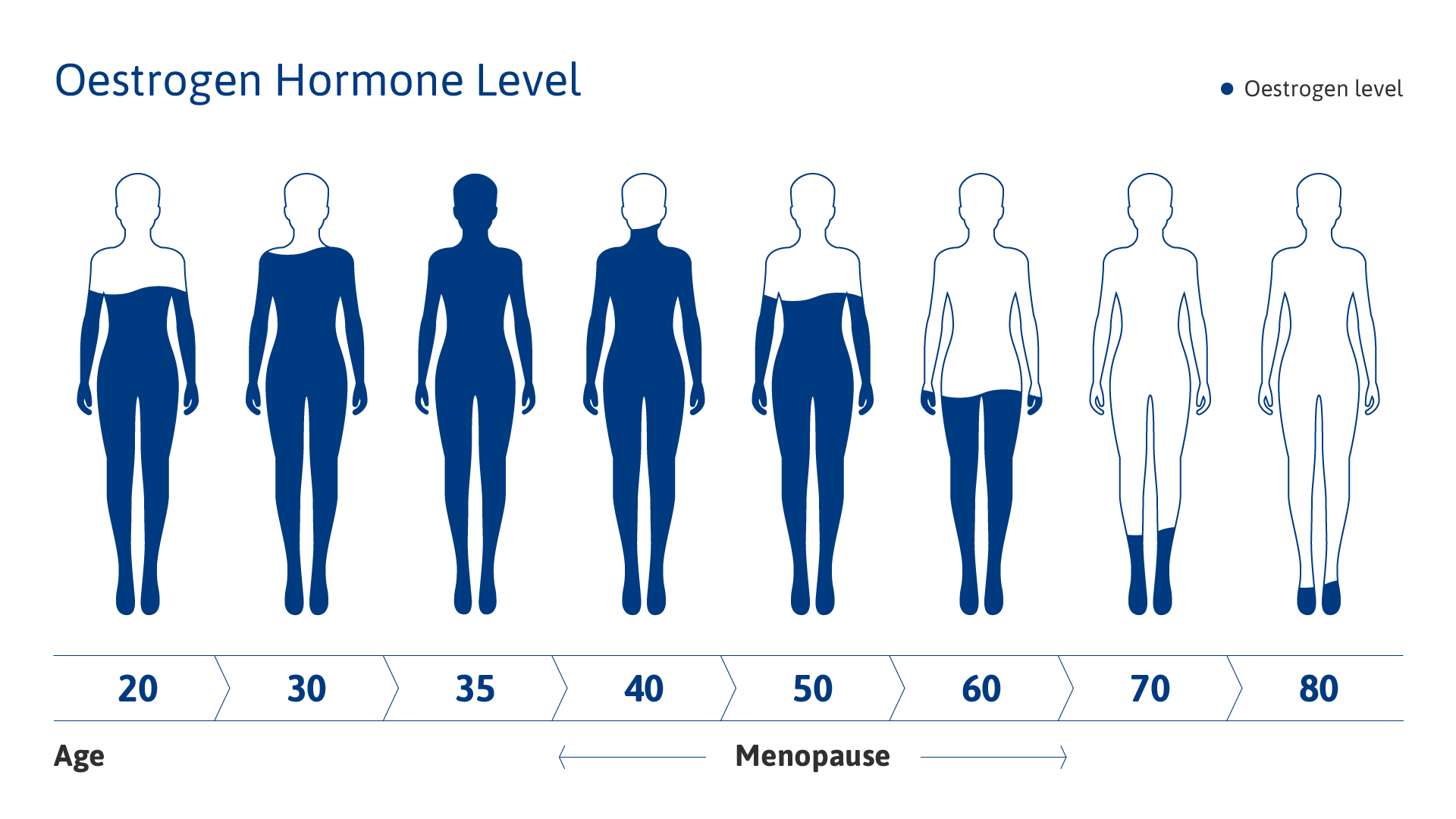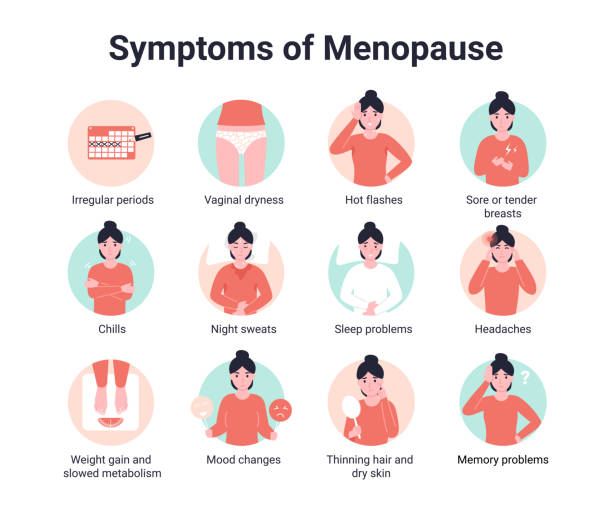
Climax (menopause) is a natural biological process that all women go through, as it is the period when their reproductive system begins to decline and ends the menstrual cycle. Usually, menopause (menopause) begins in women between the ages of 45 and 55, but this period can vary from person to person. Early menopause (menopause) can begin as early as the thirties, and late menopause - after 60 years.
During menopause (menopause), a woman's ovaries begin to reduce the production of estrogen, which is the main female sex hormone that regulates the menstrual cycle and ovulation. When estrogen levels drop to a certain point, menstruation stops and a woman becomes unable to conceive naturally.
The process of climax (menopause) is not sudden, it happens in stages. At the beginning of perimenopause, a woman may experience several physiological changes and symptoms, such as irregular menstrual cycles, hot flashes, night sweats, and mood swings. This is followed by menopause, when menstruation stops completely. Finally, during postmenopause, a woman's body adjusts to lower estrogen levels.
Climax (menopause) brings with it a number of health challenges, including increased risk of osteoporosis, cardiovascular disease, cognitive impairment, and depression. However, many women are able to successfully adapt to this period and live a healthy, active life after menopause.
What causes menopause (menopause)?
The cause of menopause (menopause) is the natural decline of ovarian function. Two main functions take place in the ovaries: ovulation, when the egg is released, and the production of sex hormones - estrogen and progesterone. These hormones regulate the menstrual cycle and reproductive function. When a woman reaches the period of climax (menopause), the production of hormones in the ovaries decreases dramatically, and ovulation stops. This causes the disappearance of menstruation and infertility.
Climax (menopause) is an inevitable process that all women go through. It usually starts between the ages of 45 and 55, with an average age of around 51. However, this period may vary from person to person. Some women may experience early menopause, which begins before age 40, or late menopause, which begins after age 55.
Early menopause (menopause) can be caused by genetic factors, certain medical conditions, or surgical procedures such as oophorectomy. Late menopause (menopause) may be associated with longer menstrual cycles and greater fertility.
Despite the fact that menopause (menopause) is inevitable, its symptoms and impact on women's quality of life can vary greatly. Some women experience intense symptoms such as hot flashes, night sweats, sleep disturbances, mood swings and decreased sex drive. Others may have minimal or no symptoms.

What symptoms can a woman feel when the climax (menopause) begins?
Climax (menopause) symptoms are varied and can appear differently for each woman. The most common symptoms are related to a decrease in the amount of estrogen hormone in the body.
Hot flashes: This is one of the most common menopausal (menopause) symptoms experienced by most women. Hot flashes can be thought of as sudden waves of feeling hot that spread through the body and can cause facial flushing and profuse sweating.
Night sweats: Hot flashes can often occur at night and cause symptoms such as sweating, temperature rise, chills.
Sleep disturbances: Hot flashes and night sweats can cause a woman to experience unpleasant sleep disturbances, such as insomnia or frequent awakenings.
Mood swings: Hormonal changes can cause emotional instability such as depression, anxiety, irritability or mood swings.
Decreased sex drive: Hormonal changes can cause a decrease in sex drive in women.
Intimate changes: Decreased estrogen levels can cause thinning, dryness and sensitivity of the vaginal wall, which can cause discomfort or pain during intercourse and increase the risk of infections.
Physical changes: Some women may notice changes in their physical appearance, such as weight gain, thinning hair, or loss of skin elasticity.
Health problems: Over time, a drop in estrogen can increase the risk of certain health conditions, such as osteoporosis and cardiovascular disease.
Although climacteric (menopause) symptoms can be uncomfortable and sometimes even interfere with daily life, there are many treatment and management strategies that can help women during this time. Each woman should discuss potential symptoms and management strategies with her health care professional.
What effect does menopause (menopause) have on a woman's health?
When the level of estrogen in a woman's body decreases during menopause (menopause), certain health problems related to hormonal changes can occur. Below are the main health problems that can arise during the climactic (menopause) period.
Cardiovascular disease: Estrogens help maintain the health of blood vessel walls. When their levels decrease, it can increase the risk of cardiovascular disease. This risk increases, especially after menopause.
Osteoporosis: Estrogen protects bones from loss and osteoporosis. After menopause, when estrogen levels drop, women lose bone density more quickly, putting them at greater risk for osteoporosis.
Weight gain and changes in body shape: Hormonal changes can increase body fat and decrease muscle mass. This can lead to weight gain and changes in body shape.
Intimate changes: A decrease in estrogen levels can cause dryness, thinning and sensitivity of the vaginal walls, which can cause discomfort or pain during intercourse and increase the risk of infections.
Decreased sex drive: Hormonal changes, especially a decrease in estrogen, can decrease sex drive.
Mood swings and depression: Mood swings and symptoms of depression may occur during perimenopause. Hormonal changes, sleep disturbances, and menopausal (menopausal) symptoms such as hot flashes can affect emotional state.
Despite these health challenges, women can take steps to reduce their risk of these health problems and improve their health during menopause. This may include a healthy diet, regular physical activity, avoiding smoking and alcohol consumption, regular health check-ups and treatment as prescribed by your doctor.

How can you help yourself during menopause?
Climax (menopause) is a natural stage in a woman's life, but the symptoms and health changes experienced during it can cause stress and some discomfort. There are many strategies to ease these symptoms and take better care of your health during this time.
Healthy diet: Nutrition has a big impact on a woman's health during the climactic period. Eating plenty of fruits, vegetables, healthy fats and proteins, as well as foods rich in calcium and vitamin D, are recommended to support bone health.
Regular physical activity: Regular physical activity can help reduce some symptoms of menopause (menopause), such as mood swings and sleep problems, as well as help control weight and strengthen bones.
Stress management: Stress management techniques such as yoga, meditation, breathing exercises can help control the tension and anxiety that occurs during menopause.
Avoiding alcohol and caffeine: Alcohol and caffeine can trigger hot flashes and cause sleep disturbances, so it may be helpful to limit them.
Avoiding tobacco: Smoking can lead to early menopause, increase the severity of hot flashes, and increase the risk of heart disease.
Quality sleep: It's important to make sure you get enough sleep, as lack of sleep can worsen menopausal (menopause) symptoms.
Regular health check-ups: It is important to visit your doctor regularly to discuss any health problems that arise during menopause. Bone density tests, cardiovascular disease risk assessments, and other tests may be recommended.
Hormone therapy and other medical strategies: Some women may benefit from hormone replacement therapy (HRT) or other medications to relieve symptoms. However, this should only be done after consulting a doctor and making an individual decision based on possible side effects and risks.
It's important to note that every woman's experience of menopause is unique and may require an individualized plan and strategies to fit your needs and lifestyle.
"Phyto Soya" nutritional supplements for menopause
"Phyto Soya" is a food supplement which its main ingredient is soy isoflavonoids, which act as phytoestrogens. Phytoestrogens are plant substances that are structurally and functionally similar to estrogens in the human body. Due to this similarity, they can interact with estrogen receptors and mimic or antagonize the actions of natural estrogens in the body.
Soy isoflavones are biologically active compounds found in soy and its products. Studies have shown that these compounds can reduce some menopausal symptoms, such as hot flashes. However, their effectiveness varies between women, and they cannot replace all estrogen functions.
Sources of information:
"World Health Organization"
"National Institute on Aging":
"Mayo Clinic"
"Women's Health"
"American Menopause Society"
# klimaksas # menopauzė






